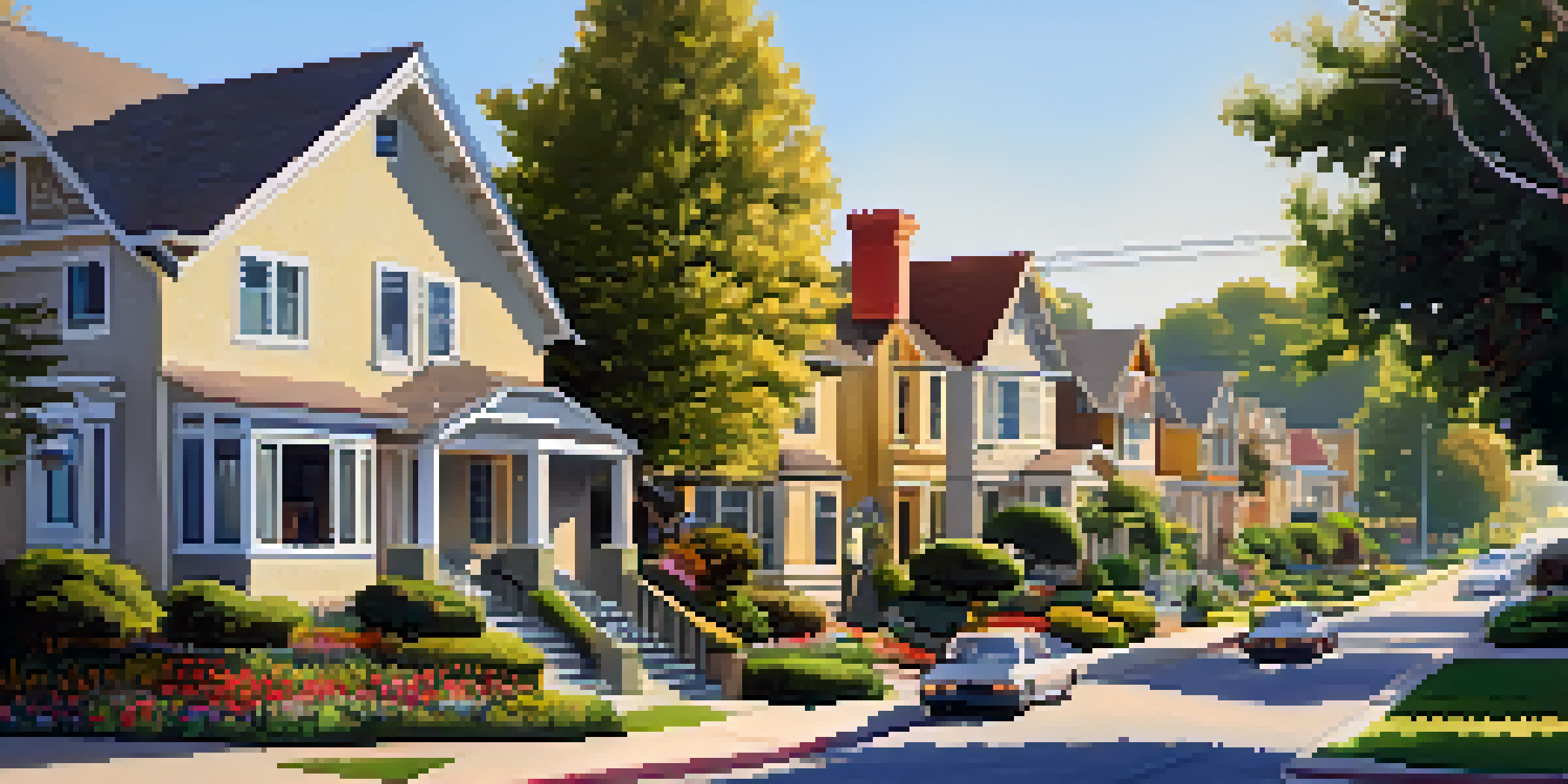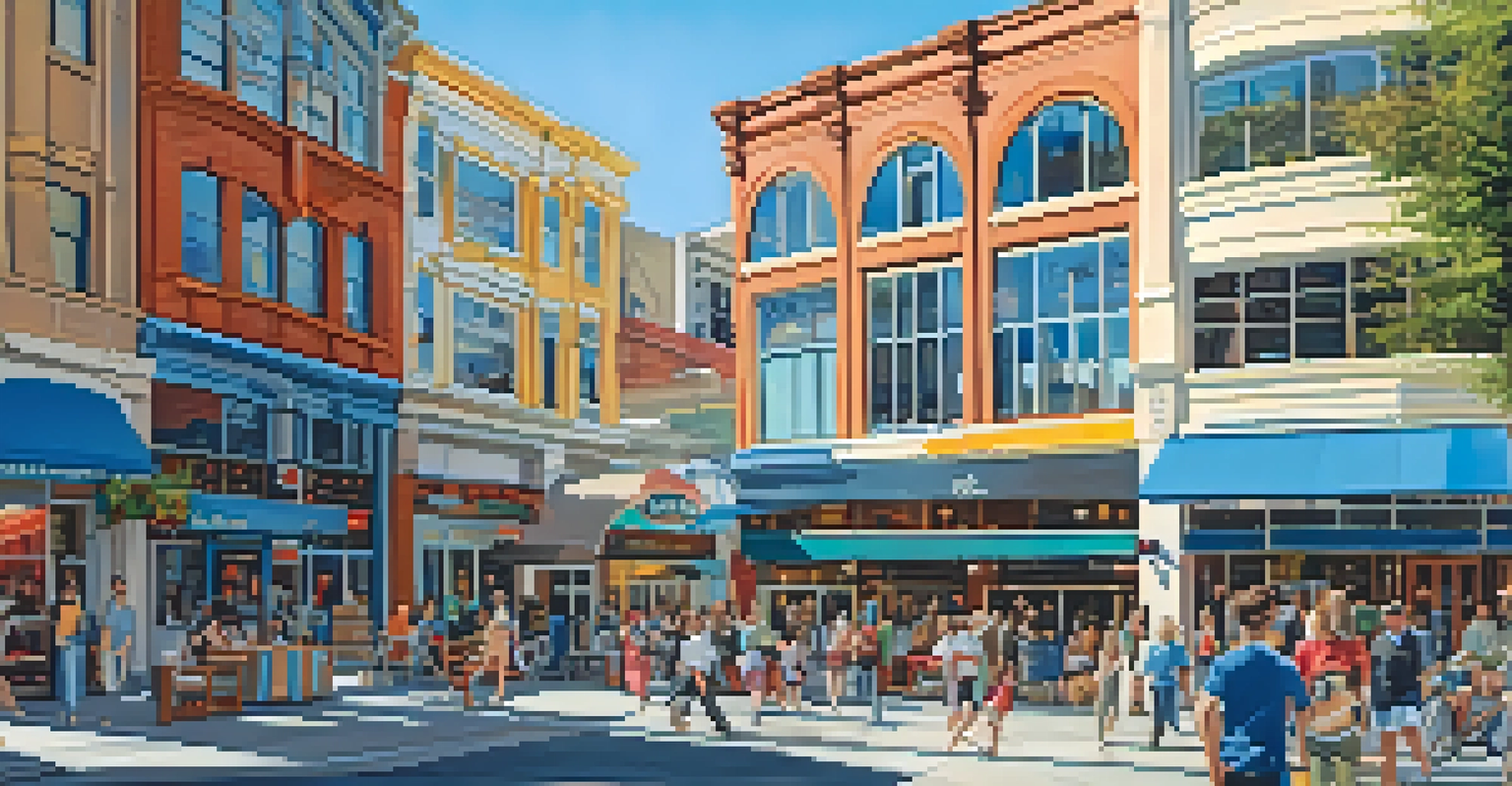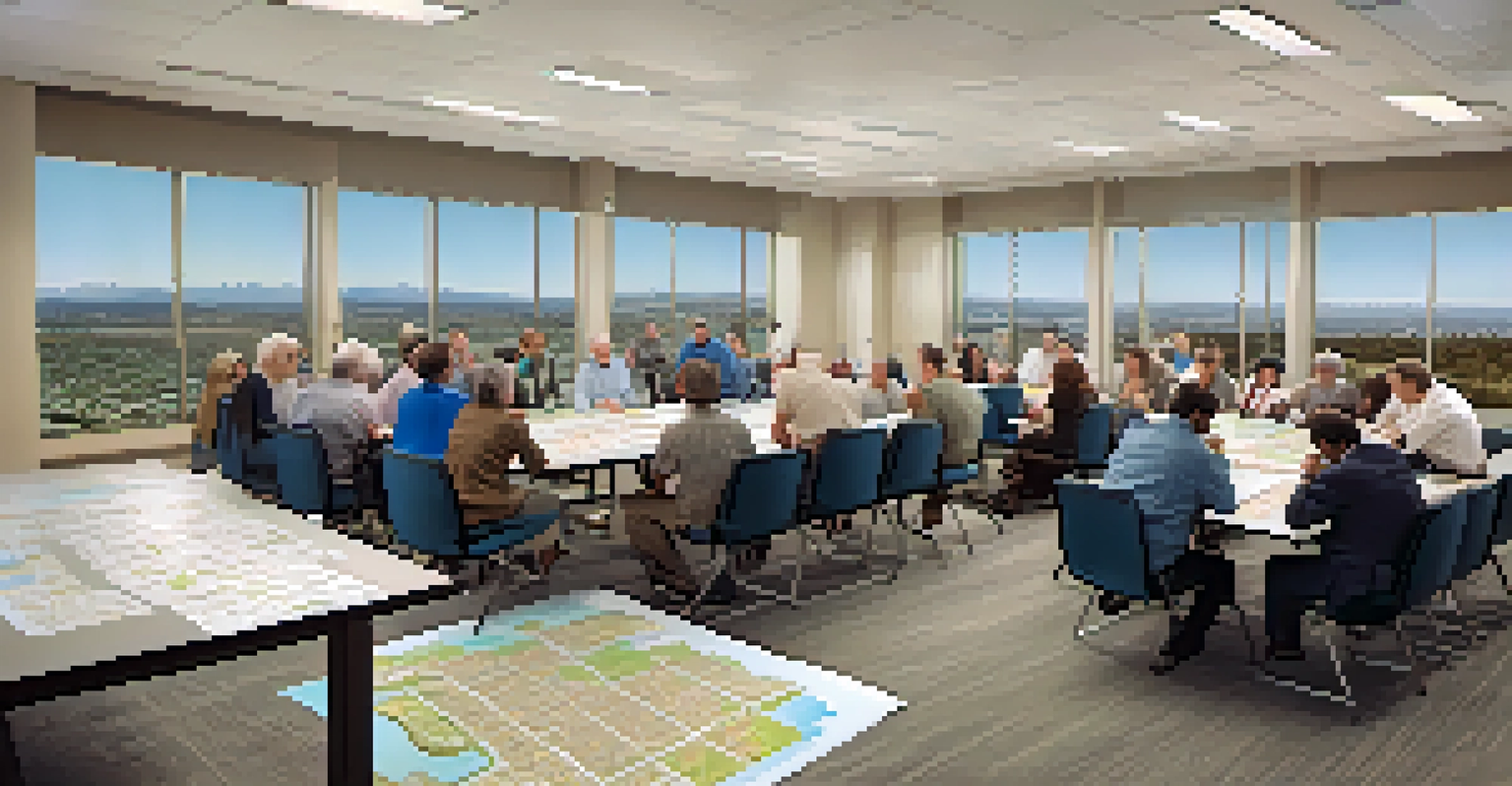The Role of Zoning Laws in San Jose Real Estate

What Are Zoning Laws and Why Do They Matter?
Zoning laws are regulations that dictate how land can be used in specific areas. They play a critical role in urban planning, helping to organize land use and ensure that different activities can coexist peacefully. For instance, residential zones keep homes away from noisy factories, creating a more pleasant living environment.
Zoning laws are the backbone of urban planning; they help create a structured environment where people can live, work, and play harmoniously.
In San Jose, these laws help manage the city's growth, balancing the needs of neighborhoods with business interests. When zoning laws are well-designed, they can enhance property values by ensuring that a community remains attractive and functional. This is particularly important in a fast-growing city where land is at a premium.
Zoning laws also affect the types of buildings that can be constructed, which can directly influence the real estate market. For example, if a new zone is designated for high-rise apartments, it could lead to increased housing supply, potentially lowering prices in that area.
Understanding Different Zoning Categories
Zoning categories in San Jose typically include residential, commercial, industrial, and mixed-use zones. Each category has distinct regulations regarding what can be built and how properties can be used. For instance, residential zones are primarily for housing, while commercial zones are meant for businesses.

Within these main categories, there are further classifications, such as single-family residential and multi-family residential. This granularity allows for a diverse range of living options and business types, catering to the varying needs of the population. It’s like sorting through a box of crayons—each color serves a specific purpose.
Zoning Laws Shape Land Use
Zoning laws regulate how land can be used, ensuring that residential, commercial, and industrial activities coexist in an orderly manner.
Understanding these categories is crucial for anyone involved in San Jose real estate, whether you're a buyer, seller, or investor. Knowing what can and cannot be built in a certain area helps you make informed decisions and avoid potential pitfalls.
The Impact of Zoning Laws on Property Values
Zoning laws significantly influence property values in San Jose. Areas with favorable zoning regulations, such as those allowing for higher density housing or mixed-use developments, tend to attract more buyers and investors. This demand can drive up property prices, making these areas more desirable.
Good zoning is not just about where buildings go, but about creating a community that supports the needs of its residents.
Conversely, properties in areas with restrictive zoning may see stagnation or even declines in value. For example, if a neighborhood is primarily zoned for single-family homes, it may miss out on the benefits of more diverse development options. Homeowners in such zones might find their properties less appealing to potential buyers.
Moreover, changes in zoning laws can create immediate effects on the market. A newly designated commercial zone can lead to increased traffic and amenities, enhancing the area's attractiveness, while a shift to stricter zoning can limit future growth and investment opportunities.
Navigating Zoning Processes in San Jose
Navigating the zoning process in San Jose can be complex, particularly for developers and investors. It often involves submitting applications, attending public hearings, and working closely with city planners to ensure compliance with zoning regulations. Understanding the local process can save time and resources.
For instance, the city may require a zoning variance if a developer wants to build something that doesn't quite fit the current zoning category. This is a formal request to deviate from established zoning laws, which can be a lengthy and sometimes unpredictable process. Think of it as asking for permission to color outside the lines.
Impact on Property Values
Zoning regulations significantly influence property values, with areas allowing higher density or mixed-use developments often seeing increased demand and prices.
Staying informed about upcoming zoning changes or proposed developments is essential for anyone involved in real estate. Local government websites and community meetings can provide valuable insights into potential zoning shifts that could affect property values and investment opportunities.
Zoning Laws and Community Development Goals
Zoning laws in San Jose are often aligned with broader community development goals. They aim to create a balanced urban environment that supports economic growth while preserving the character of neighborhoods. This balance is vital in a city that is constantly evolving.
For example, the city may encourage mixed-use developments that combine residential and commercial spaces. This approach not only fosters a vibrant community but also reduces the need for long commutes, making life easier for residents. It's akin to having a shopping mall right in your neighborhood—everything you need is just a short walk away.
By aligning zoning laws with community objectives, San Jose can enhance livability, promote sustainability, and encourage social interaction among residents. This strategic planning is essential for creating a city that meets the needs of its diverse population.
Challenges and Controversies Surrounding Zoning Laws
While zoning laws serve important purposes, they can also lead to challenges and controversies. One common issue is the tension between development and preservation. As San Jose grows, there may be pressure to build new developments, which can conflict with efforts to maintain historical sites or green spaces.
Community opposition can arise when residents feel that new zoning changes threaten their quality of life. For instance, the construction of high-density housing in a quiet neighborhood can lead to concerns about increased traffic and noise. It's a classic case of 'not in my backyard,' where residents resist changes that they believe will negatively impact their community.
Community Development Goals
Zoning laws are aligned with community objectives, promoting balanced urban growth while preserving neighborhood character and enhancing livability.
Additionally, the zoning process can be seen as opaque or overly bureaucratic, leading to frustrations among developers and residents alike. Ensuring that zoning laws are clear, equitable, and adaptable to changing community needs is crucial for fostering trust and collaboration among all stakeholders.
The Future of Zoning Laws in San Jose
Looking ahead, the future of zoning laws in San Jose is likely to evolve in response to changing demographics, economic conditions, and community needs. With a growing population, there will be an ongoing demand for affordable housing and innovative development solutions. Zoning laws may need to adapt to facilitate this growth.
Emerging trends such as sustainability and smart growth are also influencing zoning practices. For example, laws may be revised to promote eco-friendly building practices, green spaces, and pedestrian-friendly developments. It's like planting seeds for a future where both people and nature can thrive harmoniously.

As residents, developers, and city planners collaborate on zoning issues, there is potential for creating a more inclusive and vibrant urban landscape. Engaging in ongoing discussions about zoning will help ensure that San Jose’s real estate market continues to evolve in a way that benefits everyone.